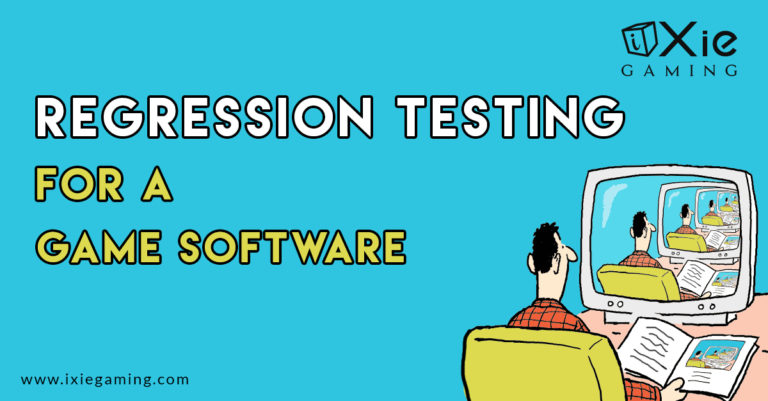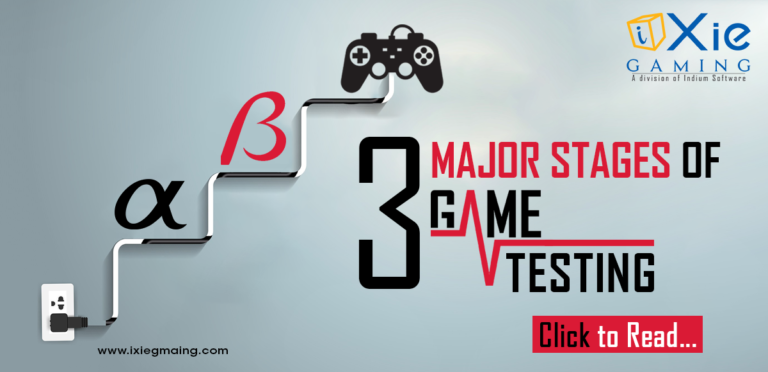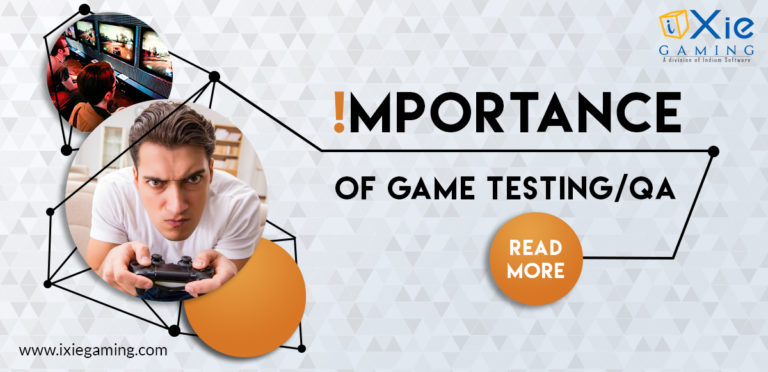This blog aims to share some insights on casino games and different types of online casino games. Then it provides useful tips on Steps and methodologies involved in testing online casino games.
According to research, social casino gambling grew into a US $3.4 billion industry in 2016. In 2017 the market situation will only improve with US $4.4 billion revenue to be expected, according to the data from Eilers Research.
The overall gambling market is set to reach US $91 billion, and the 4 percent social casino market share is a lucrative piece of the pie.
Casino Game Market Trend
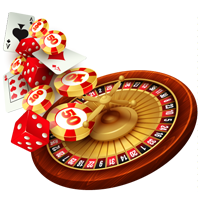 Social casino’s success has an ability to attract an older and non-traditional gaming audience. A Poker audience percentage always overlap to that of traditional gamer. This forms a total of 71% audience whose average age is 27 years. Meanwhile, the slots and casino style games target a little older audience with an average player being in their late 30s. Bringing this demographic into social gaming fold has been the key, because these players typically play more intense games and tends to be loyal to their titles.
Social casino’s success has an ability to attract an older and non-traditional gaming audience. A Poker audience percentage always overlap to that of traditional gamer. This forms a total of 71% audience whose average age is 27 years. Meanwhile, the slots and casino style games target a little older audience with an average player being in their late 30s. Bringing this demographic into social gaming fold has been the key, because these players typically play more intense games and tends to be loyal to their titles.
What are Casino Genre in Video Games?
The Casino Genre is the online versions of real-life casinos. This enables gamblers to play different variants of casino games online. It is a prolific form of online gambling.
Online casinos generally offer odds and payback percentages that are a bit higher than real casinos. Some online casinos claim higher payback percentages for slot machine games, and some publish pay-out percentage audits on their websites.
Different types of online casino games
Web-based online casinos
Web-based online casinos which are also known as flash casinos are websites where users may play casino games without downloading software to their local computer. Games are mainly represented in the browser plugins as Macromedia Flash, Macromedia Shockwave, or Java. This also requires browser support for these plugins. Also, high network bandwidth is required to play these games since all graphics, sounds, and animations are loaded through the web via the plugin. Some online casinos also allow gameplay through a HTML interface. Apple devices such as iPod, iPad, and iPhone cannot play Flash games as the technology will not be supported.
Downloadable Casino Versions
This type requires download of the software client in order to play and wager on the casino games offered. The online casino software connects to the casino service provider and handles contact without browser support. This version of casinos generally run faster to that of web-based ones because the graphics and sound programs are cached by the software client, rather than having to be loaded from the internet. On the other hand, the initial download and installation of a download-based online casino client take time. As with any download from the internet, the risk of the program containing malware exists.

Virtual casino games
In a virtual casino game, the outcome of each game is dependent on the data produced by a pseudo-random number generator (PRNG). This determines the order of the cards in card games, the outcome of a dice throw, or the results produced by the spinning of a slot machine or roulette wheel. PRNGs use a set of mathematical instructions to generate a long stream of numbers that give the impression of true randomness. When implemented correctly, a PRNG algorithm will ensure that the games are both fair and unpredictable. However, usually, the player has to trust that the software has not been rigged to increase the house edge, as its inner workings are invisible to the user. This type of online casino is audited externally by independent regulators to ensure that their win percentages are in line with the stated odds, and this can provide a degree of assurance to the player that the games are fair, assuming the player trusts the regulator.
Instead of trusting the software, with the provably fair concept the player can verify that the casino plays fair and the software has not been rigged. The idea is that the server creates a secret random seed and shows the hash (like SHA256) to the player. The player provides a random seed as well. Then the server combines the secret seed and the player seed to calculate the random number result. With the result, the player can see the secret server seed, too. The algorithm to calculate the result is known, so the player can verify that the server didn’t cheat. It is often used for cryptocurrency casinos.
Live dealer casino games
In a live casino game, a human dealer runs the game in real time from a casino gaming table, which can be seen via a live streaming video link. Players can make betting decisions via a console on their computer screen and can communicate with the dealer using a text chat function.
These games are a lot more expensive for websites to host than virtual games, as they involve a heavier investment in technology and staffing.
A live casino studio typically employs
- one or more cameramen,
- several croupiers running various games,
- an information technology manager to ensure that any technical hitches are dealt swiftly,
- a pit boss that acts as an adjudicator in case of disputes between players and croupiers.
In most cases, this requires at least a three-room setup, comprising a live studio, a server/software room, and an analyst’s room. The configuration of these rooms varies from casino to casino. Some will have several gaming tables in one room, and some will have a single table in each room.
The most common live dealer games offered at online casinos are baccarat, blackjack and roulette.
Variants of casino games
Steps in Casino/Slot Game Testing
Casino game testing requires proper planning and execution of the testing steps:
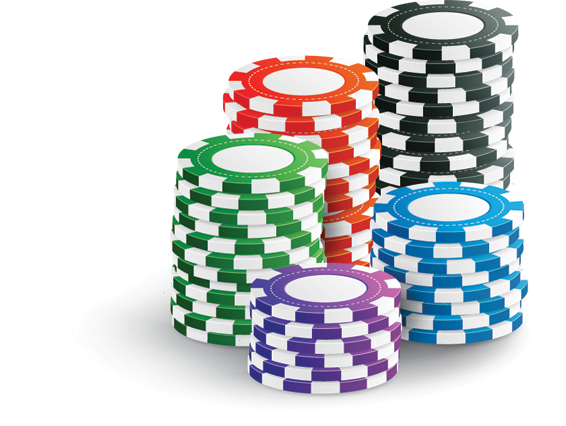 Proper game testing plan and design are the key aspects of casino game testing – this includes defining game test objectives and game testing best practices
Proper game testing plan and design are the key aspects of casino game testing – this includes defining game test objectives and game testing best practices- The game testers should have a clear understanding of the game test perquisites and game test cases.
- Iterative manual testing is required to verify if the game meets its design specifications and other functional and non-functional requirements.
- Game Functional testing such as behavior testing, game logic testing, game rules testing, game pay-out testing should be done regularly.
- Pay-out Assurance – End to end pay-out testing activities are carried out which is embedded to the whole game lifecycle. The pay-out test involves testing million game rounds and real server logic execution.
- The game testing team should also perform game compliance testing to ensure if the game publisher has followed all the game regulations.
- Casino Game Testing also involves Non – Functional Testing such as usability testing, localization/translational testing, performance testing, failover/recovery testing, game authentication and security testing.
- Regression testing • Performance testing • Client compilation, installation & upgrade testing • Compatibility testing • Middleware, browser & platform based • Staging – cross-product integration testing • Rollback path testing • Post-upload testing are few activities which should be carried out by every testing team while handing over the game product to the client.
Conclusion
It is an interesting genre for gamers as it has different variants which target different age-groups. The games are addictive, but not compulsive. It takes extremely skilled QA efforts to get one into the market since the risk of receiving wide-scale criticism is always high when it comes to targeting an audience who love gambling. Testing a machine’s ability to create unique, random combinations presents interesting challenges. Throw currency processing into the mix will have some intriguing test cases. And as with any QA situation, testing slot machines is not without its surprises.
This genre is, without a doubt, risk-prone, but definitely a risk worth taking!
Happy Gaming!!!




